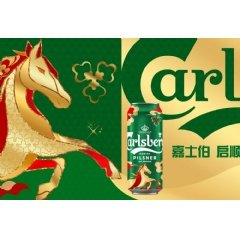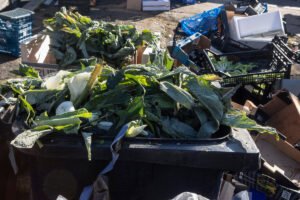Tuesday, 17 February 2026
Commitment to purity and sustainability: LANXESS’s role in shaping the future of food ingredients
Namitesh Roy Choudhury, Vice Chairman & Managing Director of LANXESS India Private Limited As consumer preferences increasingly shift toward safer, greener, and more transparent food choices, the food and beverage…

Namitesh Roy Choudhury, Vice Chairman & Managing Director of LANXESS India Private Limited
As consumer preferences increasingly shift toward safer, greener, and more transparent food choices, the food and beverage industry finds itself at a pivotal moment. Preservatives and additives are no longer solely used to extend shelf life; they are now essential for earning consumer trust, meeting clean-label expectations, and advancing sustainability.
At the forefront of this transformation is LANXESS, a global leader in speciality chemicals, recognised for its high-purity ingredients, including benzyl alcohol, benzoic acid (Purox B), and sodium benzoate (Purox S). With a strong reputation for uncompromising quality and ambitious sustainability initiatives, the company is helping food and beverage manufacturers address current challenges while preparing for future demands.
In an exclusive conversation with NUFFOODS Spectrum, Namitesh Roy Choudhury, Vice Chairman & Managing Director of LANXESS India Private Limited, discussed how the company is ensuring food safety and purity. He also highlighted how LANXESS empowers manufacturers with clean-label solutions and guides clients through complex regulatory landscapes worldwide.
Your benzyl alcohol and benzoic acid offerings meet NF/FCC and other global food safety standards. Could you share how you ensure purity and compliance in your production processes?
At LANXESS, food safety is not just about meeting standards; it is a commitment to delivering quality, consistency, and earning trust. Through state-of-the-art manufacturing facilities, robust quality management systems, and strict adherence to global regulatory standards, we ensure that our products and processes meet the required global food safety standards.
We have implemented comprehensive quality control measures at every stage, from raw material sourcing to final product testing, to guarantee consistency, traceability, and compliance with industry norms, including NF/FCC and other international benchmarks. Our commitment to quality and excellence ensures that our products meet the highest safety and purity standards demanded by the food, pharmaceutical, and personal care industries. LANXESS produces benzyl alcohol in multiple grades for a variety of applications. It is a colourless liquid with a pleasant, mild aroma and serves as an effective preservative, solvent, fragrance fixative and intermediate in various chemical processes. It is highly valued due to its low volatility and low toxicity.
The Benzyl Alcohol Food Grade is Kosher certified and compliant with the specification requirements of EU regulation 231/2012/EG. Its stable odour profile and excellent solvency make it the preferred choice in the production of food flavourings, beverages, and edible products. This food-grade benzyl alcohol ensures safety, quality, and compliance with strict industry standards, providing an effective solution for enhancing the shelf life and flavour profiles of various food items.
Similarly, LANXESS is the world’s largest manufacturer of benzoic acid. We supply benzoic acid at various degrees of purity under the trade name Purox® B, available in both liquid and flake forms. It is a high purity, versatile benzoic acid used as a preservative, a building block in alkyd resins, and as a corrosion inhibitor and is also known for its low odor, lack of discolouration, and minimal agglomeration.
With growing consumer demand for clean-label and eco-certified products, how do your preservatives and additives (like Purox B) support food and beverage manufacturers in meeting those expectations?
Sustainable products are the future. In line with societal trends and needs, we aim to constantly improve the sustainability performance of our product portfolio, to identify critical substances in products and to substitute them or develop safe alternatives. Our preservatives protect food and beverages, extending their shelf life and helping to reduce food waste.
For example, our Purox® S (sodium benzoate), is a preservative that is identical to those found in nature. It safely and effectively inhibits microbial growth and is widely used in a variety of applications, including soft drinks, jellies, dressings, and sauces, as well as in cosmetics, toiletries, and pharmaceutical products. It is approved by the Food and Drug Administration (FDA) and the European Food Safety Authority (EFSA) as a food additive and is also known as E21.
Similarly, our Purox B (benzoic acid) is used as a safe and effective preservative in a range of food products, including pizzas, tortillas, and fish products. It is also used in care, cosmetic and pharmaceutical products. Industrial customers utilise related Purox B formulations to produce materials such as resins, paints, and plasticisers. What sets these products apart is their verified sustainability credentials.
Purox® S is also available under the LANXESS’ Scopeblue label, which is given to products made from at least 50 per cent sustainable raw materials or with a carbon footprint at least 50 per cent lower than their conventional alternatives. Purox B, on the other hand, is compatible with the EU Ecolabel, a recognised certification for environmentally friendly products that meet high standards across the entire product lifecycle. The business unit also offers a range of products that are certified Kosher and Halal, meeting the specific requirements of various markets. INTERNAL
The reduction of carbon footprint in products like ECO chloroformates and ISCC+ certified benzaldehyde is commendable. How do you see carbon transparency influencing ingredient choices in the food industry?
Carbon transparency is becoming crucial as consumers and regulators demand for more sustainable products. Clear data on the carbon impact of each product allows manufacturers/customers to make informed choices that align with their environmental goals.
At LANXESS, we actively support our customers on their journey to climate neutrality by providing product carbon footprint (PCF) data of our products. Our methodology systematically quantifies the GHG emissions and removals for the production of our products, including the production of our raw materials, the generation of our used energies and the transport. We follow the “Cradle-to-Gate” approach. Our calculations are aligned with the ISO 14067 Norm and based on the IPCC AR6 Report.
We have been transparent about our sustainability efforts and have been recognised by several sustainability indices and rankings for our progress toward sustainable management. For instance, the climate protection initiative CDP has recently honoured LANXESS for its outstanding commitment to combating climate change. In its current assessment, CDP has awarded the company the top grade of “A” in the “Climate” category, placing LANXESS among the top 2 per cent of the more than 24,700 companies evaluated by CDP. The grade “A” is awarded to companies that report transparently and comprehensively on their activities in climate protection.
We have been disclosing climate protection-related data to CDP since 2012. These efforts are aligned with our goal of achieving climate neutrality by 2040, showing that our climate efforts are both transparent and effective.
How does LANXESS assist its food and agriculture sector clients with regulatory guidance, especially in diverse markets like the U.S., EU, and Asia?
At LANXESS, we evaluate the manufacturing process and consider potential health, environmental, and safety issues when choosing production equipment and deciding the best practices to use in manufacturing. LANXESS has a staff of trained and experienced professionals available to address health, safety and environmental questions about our products.
Our team comprises product safety representatives and industrial hygienists, supported by toxicologists, regulatory specialists, environmental experts, and medical personnel.
Globally standardised internal compliance frameworks and frequent local audits ensure consistent application of safety and regulatory protocols, building on group-wide compliance directives that exceed local requirements and include training, HSE controls, and product stewardship.
Technology
Carlsberg Launches AI-Crafted Lunar New Year Packaging
Feb 17, 2026 | Beverages
FAO Experts Assess Risk of Antimicrobial Resistance Spreading via Food Loss and Waste
Feb 17, 2026 | Sustainability
Setting the Standard for Sustainable Ingredients
Feb 16, 2026 | Ingredients
Food Testing
Redefining Trust in Organic Foods through Independent Testing
Feb 13, 2026 | Food Safety and Testing
AFNOR International Eyes Global Food Safety Growth with HACCP Group Takeover
Feb 04, 2026 | Australia
More Popular
Cerealto Sells Pasta Unit to Specialist Player Cerealis
Feb 17, 2026 | Company News
New Nestlé Vital nutritional drink targets rising demand for healthy-ageing solutions
Feb 17, 2026 | Company News
Carlsberg Launches AI-Crafted Lunar New Year Packaging
Feb 17, 2026 | Beverages






